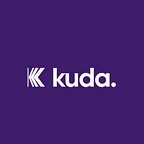The Ultimate Business Financing Guide For Nigerians
Explore fundraising options for your business.
Every day, business owners in Nigeria seek financing to scale their operations or add to their working capital. Although there is a void left by the historical decline in traditional bank financing, alternative financing providers are stepping in.
It might be overwhelming trying to find the right places to seek financing. This guide will make things easier for you.
Crowdfunding
Crowdfunding has turned traditional financing on its head. Rather than seeking ₦5,000,000 from a single source, you can raise the same amount of money from ten people pledging ₦500,000 each.
With crowdfunding, you can raise money without incurring too many risks - you don’t necessarily have to give up equity or take on long-term debt.
You can use crowdfunding platforms like Kickstarter and Indiegogo or social media to fundraise. Start by crafting a compelling story about your business that can inspire people to invest.
Peer-To-Peer Financing
Peer-to-peer (P2P) financing happens on lending marketplaces where people seeking to lend money are matched with businesses that need money. Just like crowdfunding, the money can be pooled from different people or given by a single person. The difference is that you don’t have to do the heavy lifting. Instead, it is left to the platforms.
P2P platforms are easy to use and may offer surprisingly low interest rates. The best part is that with a good or not-so-good credit score, you can be eligible for p2p loans in Nigeria. While p2p lending can be convenient, you may end up paying higher loan fees than expected.
Business Grants
Business grants are non-repayable funds given to innovative businesses that can strongly prove themselves. There are several upsides to business grants including the fact that you don’t have to pay back the money you get or worry about interest rates. You might however have to deal with restrictions on how you can use the grant you get. Many grants come with strict limitations on what they can be used for. If you don’t stay within the usage guidelines, you could end up having to pay back the grant.
No matter the type of legitimate business you run, there is a chance to get a grant offered by federal and state governments or private enterprises. Examples include the Google Black Founders Fund, the Amazon Small Business Grant, and the NSIA Prize for Innovation.
Invoice Financing
Invoice financing is a way to borrow against the amounts due from your customers. It means you’re using unpaid invoices as collateral for a loan. You can only take advantage of invoice financing if your business has a reliable payment history. Here’s how invoice financing works:
1. You send an invoice to the financing company and work out the terms of the loan.
2. The cash sent is usually a percentage of the invoice value which has to be repaid when the customer settles you.
Finding the right places to look for financing is just one side of the coin — meeting their criteria is the other side. Here are some things you need to get a typical business loan:
- Title documents: The lender needs to know if you are the owner of the business or not.
- CAC documents: Lenders want to know if your business exists. If you haven’t registered your business, do it on Kuda Business now.
- A business plan: You have to outline your business goals and how you want to achieve them.
- Bank statement: You can request a statement for six months to one year on the Kuda Business app.
- Tax statement for at least two years (depending on how long your business has been in operation).
- Credit report history: Your credit history gives a clear picture of the state of your business and how frugal it is.
We hope we’ve helped you at least a little in your search for business financing.
Take care. 💜
